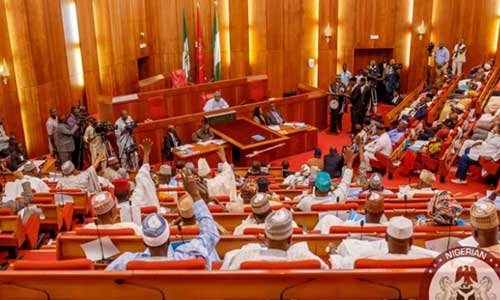
The Senate has issued a strong response to recent comments by Pastor Tunde Bakare, cautioning the prominent cleric and former presidential aspirant against directing what it described as “sweeping generalizations and disparaging commentary” at the 10th National Assembly.
In a statement released by the Chairman of the Senate Committee on Media and Public Affairs, Senator Yemi Adaramodu, the upper chamber acknowledged Pastor Bakare’s longstanding role in national discourse but expressed concern that his latest remarks veer into “rhetoric laced with contempt and unsubstantiated claims.”
“While we respect every citizen’s right to voice their opinion on national issues, such commentary must not cross into misleading assertions that risk eroding public trust in our democratic institutions,” Adaramodu said.
Highlighting Bakare’s dual identity as a cleric and political figure—having contested for the presidency and once served as a vice-presidential candidate—Adaramodu noted that the context of his criticism cannot be separated from his political history.
“We view his corrosive criticisms of the National Assembly as a biased and political ecumenical homily,” he remarked. “His position as a political leader significantly influences the lens through which his statements are made.”
The Senate also reminded Bakare of his legal background, emphasizing that he should be aware of constitutional limits regarding public commentary—especially on matters currently before the courts.
Addressing Pastor Bakare’s allusion to past tensions between the legislature and the executive, Adaramodu clarified that while the Senate has had cause to challenge the executive on specific issues—such as provisions in the presidential declaration on Rivers State—the 10th Assembly has remained principled in its approach.
“The absence of manufactured conflict does not equate to legislative weakness. True oversight is measured in impact, not theatrics,” the statement noted.
Adaramodu further dismissed any parallels drawn between the current Assembly and past administrations that resisted controversial policies like the failed Third Term bid. He insisted that no unconstitutional agenda has been brought before the 10th National Assembly.
“To suggest otherwise based on personal frustrations or future political ambitions is both unfair and counterproductive,” he said.
While urging public figures to exercise their influence responsibly, the Senate maintained its openness to dialogue with all Nigerians, including Pastor Bakare, as part of its commitment to good governance.
“Our democracy, though imperfect, is best nurtured through thoughtful contributions that inspire reform—not resentment,” the statement concluded.
Comments